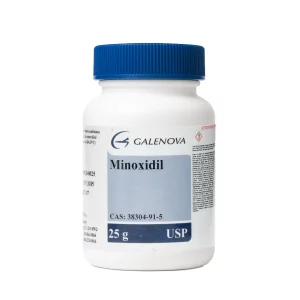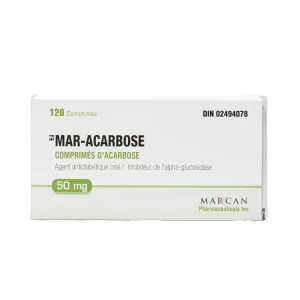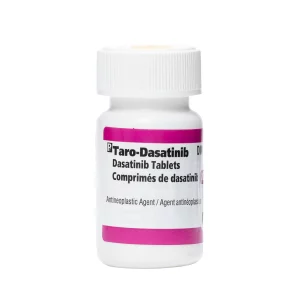Your cart is empty.
Your cart is empty.
Rapamune (sirolimus) is a medication first approved to help prevent organ rejection in transplant patients. It works by calming down the body’s immune system so it doesn’t attack a new organ.
But recently, scientists and health enthusiasts have started asking a new question: Can Rapamune help people live longer and stay healthier as they age?
This article explores how Rapamune works, what science says about its impact on aging, and how people today are using it to support long-term health.
We’ll look at how it affects your body at the cellular level, why it’s getting attention in longevity research, and what it means for people who care about staying well as they age. If you’ve been comparing Rapamune vs Rapamycin, or want to know how it affects cells, this guide is for you.
Rapamune is the brand name for a compound called sirolimus.It’s an FDA-approved drug used to help organ transplant patients avoid rejection. Licensed clinicians have prescribed it for years because it reduces immune activity by blocking a pathway in the body called mTOR.
The mTOR pathway helps control how cells grow and divide. As researchers studied Rapamune more closely, they noticed something interesting: blocking the mTOR pathway also seems to influence how cells age.
Because of this discovery, Rapamune is now being studied not just for its use in medicine, but also for its potential in boosting healthspan and lifespan. Healthspan refers to how long you live in good health, without chronic disease. Lifespan is the total number of years you live. Rapamune may affect both.
Rapamune affects something called the mTOR pathway. This is a key system in the body that tells cells when to grow, when to divide, and when to rest.
When the mTOR pathway is very active, cells focus on growth. But too much growth can mean faster wear and tear. That’s not ideal as we age. By slowing down the mTOR pathway, Rapamune helps cells switch from “growth mode” to “repair mode.” This is important because aging is often linked to accumulated damage inside cells.
When cells spend more time repairing themselves, the body may be better equipped to stay healthy over time. This switch from growth to repair is one of the reasons Rapamune for anti-aging is now a growing focus in wellness and longevity circles.

Most of what we know about Rapamune and lifespan comes from animal studies. In multiple research trials, mice and other lab animals given mTOR inhibitors lived longer than those that didn’t get the drug.
One well-known study showed that even when given late in life, Rapamune still helped mice live longer. Scientists are also beginning to look at Rapamune in people. A few clinical trials and observational studies are in progress. These studies measure things like immune response, inflammation levels, and cell repair markers.
While it’s too early to say whether Rapamune will definitely extend human lifespan, the early results are promising, and interest in how to purchase Rapamune continues to grow, especially among wellness communities and proactive health advocates.
In the wellness space, some longevity-focused users have started taking Rapamune in small doses.
These low-dose protocols usually involve taking Rapamune once a week, not every day. This method is meant to reduce risks while still providing benefits.
People who take Rapamune for longevity often work with medical professionals who track their health over time. They use lab tests to monitor things like:
Results can vary from person to person. Some people report better energy, less joint stiffness, or improved bloodwork. Others see subtle or slow progress. But most agree: consistency over months or years is important.
It’s also key to work with a doctor. While the wellness world is excited about the possibilities, medical supervision helps ensure that use is safe and properly adjusted.

Senescent cells are cells that have stopped dividing. They’re sometimes called “zombie cells” because they don’t function properly, but they also don’t die. Instead, they hang around and release inflammatory chemicals that can damage nearby healthy cells.
Over time, senescent cells build up and contribute to many age-related changes, like joint problems, slower healing, and low-grade chronic inflammation.Scientists are now looking into how Rapamune might affect these aging cells. Early research suggests Rapamune may reduce the number or impact of these “zombie” cells.
In other words, Rapamune may not kill senescent cells directly, but it may help keep their damage under control. Some experts are even exploring combinations of drugs that target these cells together. If you’re researching Rapamune and senescent cells, you’ll find a growing number of scientific papers and trials exploring how this drug fits into a broader anti-aging strategy.
While Rapamune is promising, it’s not something you should start on your own.
It’s still only FDA-approved for serious surgeries, but it’s still being studied for other benefits. That means using it to support healthy aging is considered “off-label,” and should always involve medical guidance.
A care team can:
You’ll likely need regular checkups to adjust the dose or make sure everything is going well. Results also take time. Don’t expect dramatic changes overnight. The idea is to improve your body’s ability to maintain itself over the years, not just weeks.
Finally, not everyone may benefit equally. Genetic differences, diet, and lifestyle all play a role in how the body responds to mTOR inhibition.
Rapamune slows the mTOR pathway, which helps cells shift from growth to repair. This shift may help the body stay healthier longer.
Animal studies are strong, but human data is still limited. Research is ongoing and results are being closely watched.
Most people taking it for anti-aging purposes use small weekly doses—often between 1mg and 6mg. Always under a doctor’s care.
It doesn’t directly destroy them, but it may reduce their harmful signals and help slow their build-up in tissues.
Yes. Rapamune is the branded form of sirolimus, which is a type of rapamycin made for use in humans. If you’re comparing Rapamune vs rapamycin, know that the difference mostly comes down to formulation.
If you’re interested in trying Rapamune as part of your longevity routine, it’s essential to work with a licensed medical professional. While it’s not available over the counter, there are trusted online platforms and pharmacies where you can purchase Rapamune with a prescription.
Harrison, D. E., et al. (2009). Rapamycin fed late in life extends lifespan in genetically heterogeneous mice. Nature, 460(7253), 392–395.
https://pubmed.ncbi.nlm.nih.gov/19587680/
Kaeberlein, M., & Kennedy, B. K. (2011). Hot topics in aging research: protein translation and TOR signaling. Aging Cell, 10(2), 185–190.
https://pubmed.ncbi.nlm.nih.gov/21176090/
Mannick, J. B., et al. (2014). mTOR inhibition improves immune function in the elderly. Science Translational Medicine, 6(268), 268ra179.
https://pubmed.ncbi.nlm.nih.gov/25540326/


Minoxidil 25mg - Oral vasodilator for blood pressure management. Cardiovascular foundation support, pharmaceutical-grade standards, expert monitoring required.

Acarbose 50mg 120 Tablets - Gentle introduction to glucose control. Three-times daily with meals, precision-formulated tablet strength.

Dasatinib 20mg 60 Tablets - Flexible pediatric-strength dosing option. USP standards compliance, anytime administration, gradual increase capability.
Unlock savings on bundles and elevate your online experience today!